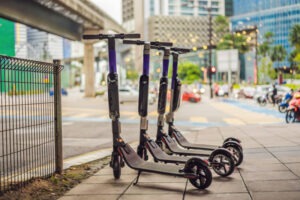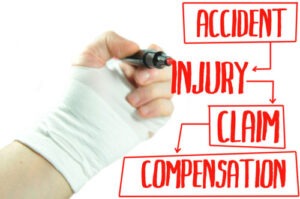
An accident victim’s ability to generate income and ability to enjoy life can diminish in both small and large ways. While some injuries are immediately apparent, other surface later when the involved parties may not even think to attribute arising health issues to a prior accident.
Here are the 15 most commonly seen injuries in a personal injury case


Expect More, Receive More: Legal Support That Feels Like Family
Traumatic Brain Injury (TBI)
Every year, 2.5 million people sustain a traumatic brain injury. It is common for survivors to suffer from chronic, debilitating headaches. TBIs can also inflict cognitive impairments including memory loss, the inability to pay attention, and diminished communication skills. These impairments make it difficult for accident victims to excel professionally and academically.
Those with TBIs can experience problems controlling their emotions. They might become irrationally angry, even violent, over minor issues.
Neck Injuries
Since the neck houses part of the spine, neck injuries may result in chronic and painful nerve damage. Pinched nerves in the neck can radiate through the shoulders, arms, and hands. They can cause muscle weakness, making simple actions like lifting everyday objects uncomfortable.
The neck relies on ligaments and tendons for flexibility. When these parts experience trauma, twisting, stretching and bending can be challenging and painful.
Back Injuries
Back injuries are common in work-related accidents involving heavy lifting. Two other common causes are automobile accidents and falls. Herniated discs, fractures, strains, and sprains can occur when too much weight or pressure is placed on the back.
Spinal Cord Injury
Falls and traffic accidents are two of the leading causes of spinal cord injuries. Spinal cord damage affects the body’s nervous system. Pain can radiate through parts of the body that weren’t directly impacted. Involuntary spasms can make mobility difficult and even dangerous. In worse case scenarios, spinal cord injuries result in paralysis.
Amputations
If the blood supply to a limb is cut off for too long, an accident victim may have to undergo an amputation. This can happen when an arm or leg is trapped under rubble or a heavy object like a vehicle. Extreme impact can also permanently obstruct blood flow. Depending on the affected limb, amputations can leave accident victims unable to walk, drive, and complete tasks at their previous speed.
Burns
On an annual basis, over a million people in the United States require medical attention because of burns. Explosions in car accidents as well as commercial and residential fires are a few possible accident scenarios in which people sustain burns.
Burn injuries that leave scars behind can make burn victims feel self-conscious. Extremely severe burns can destroy human bones, making amputation necessary. They can also cause nerve damage, making the body either numb or hypersensitive.
Bone Breaks and Fractures
When you hear about fractures and broken bones, you may think of casts and splints covering arms and legs. However, there are many other painful possibilities including broken ribs, fractured skulls, and fractures in which the bone tears through the skin. Some broken bones and fractures can stunt growth in children.
Internal Organ Damage
Internal organ damage is extremely dangerous as the injury may not be easily and immediately detected. The delay can cause the injury to worsen and become increasingly life-threatening.
Rupture of the abdominal aorta can be fatal because the aorta, the largest artery, delivers blood to the entire body. When the aorta ruptures, every organ is at risk and could sustain permanent damage if intervention isn’t quick.
It is well-known that when an organ is punctured, it cannot function properly. Punctured organs can also compromise other body parts because substances can leak from the perforation.
The kidneys filter 150 quarts of blood daily. When the kidneys sustain blunt force trauma or punctures in an accident, they may not be able to remove toxins from the blood. Kidney patients often undergo exhausting dialysis to replace kidney function.
A ruptured spleen happens when the covering of the spleen breaks open. Depending on the size of the rupture, a heavy amount of bleeding may occur. Ruptured spleens can be fatal if not treated promptly. Since the spleen helps the body to filter blood and fight infection, spleen injuries can be toxic.
A punctured lung involves air escaping from the lung into a space between the lung wall and the lung.This can cause the lung to collapse, creating breathing difficulties.
Internal bleeding is the number one cause of mortality worldwide. Blood vessels carry blood to different parts of the body. Vital organs may not receive the blood they need to function and could shut down when these vessels are damaged.
Whiplash
Whiplash typically is acute and pain goes away within days of an accident. However, it does have the potential to come with long-lasting health conditions including fatigue, limited neck mobility, ongoing headaches, and dizziness. The symptoms may last for a few years.
Seat Belt Injuries
Seat belt syndrome can appear to be only a surface level issue that causes rashes and bruises. The damage can go much deeper, including internal organ damage, broken ribs, and neck injuries.
Catastrophic Injury
Catastrophic injuries include brain damage, spinal cord injuries, and paralysis. They prevent accident victims from performing any gainful work, making them eligible for total disability benefits.
Drowning
Drowning accidents disproportionately affect children. By law, pools in Florida are required to be surrounded by a protective barrier to prevent drowning incidents. Due in part to negligence, people still drown daily. When drowning isn’t fatal, it can leave survivors with permanent brain damage, respiratory problems, seizures, and paralysis. It can also leave survivors in a vegetative state.
Electrocution
An electrocution accident can occur when a person makes contact with an electrical source, causing an electrical current to pass through that person’s body. An exposed power line, faulty appliances, or worn down wiring can cause electrocution by contact. Electrocutions sometimes happen when consumer electronics like flat irons and hairdryers fall into full sinks or bathtubs.
Electrocution can cause internal and external injuries. It can cause brain or nervous damage, cardiac arrest, changes in personality, memory loss, loss of vision, loss of cognition, neuropathy, and permanent heart muscle damage. Severe burns are also a possibility.
Scarring/Disfigurement
In the best case scenarios, scars fade away eventually. Sadly, for many accident victims, they last a lifetime. Disfigurements and scars can make people feel self-conscious and embarrassed. The personal toll can be especially devastating when the disfigurement cannot easily be concealed by clothing.
Some disfigurement may also restrict a person’s movement and this can adversely affect their ability to do their job and routine daily functions.
Paralysis
Accident victims who become paralyzed often become incapable of working and enjoying certain physical hobbies for the rest of their lives. Those who are able to regain some of the lost sensation and mobility often have to endure exhaustive therapy. Ongoing medical care, caregivers, and accommodating home modifications are almost always necessary and are hardly ever inexpensive.
When should I contact a personal injury attorney?
Contact an experienced personal injury attorney if you have been injured due to someone else’s negligence. You can contact us for a free consultation to review the details of your case. Contact us today online or at (239) 334-3933.
About the Author of this Page: The above information was written or reviewed by one of the attorneys at Viles & Beckman LLC who have a combined experience of nearly 60 years: Marcus Viles, Michael Beckman. The information provided in this article comes from years of experience trying legal cases outside and inside courtrooms throughout Florida along with extensive research.
https://www.vilesandbeckman.com/personal-injury-compensation/






